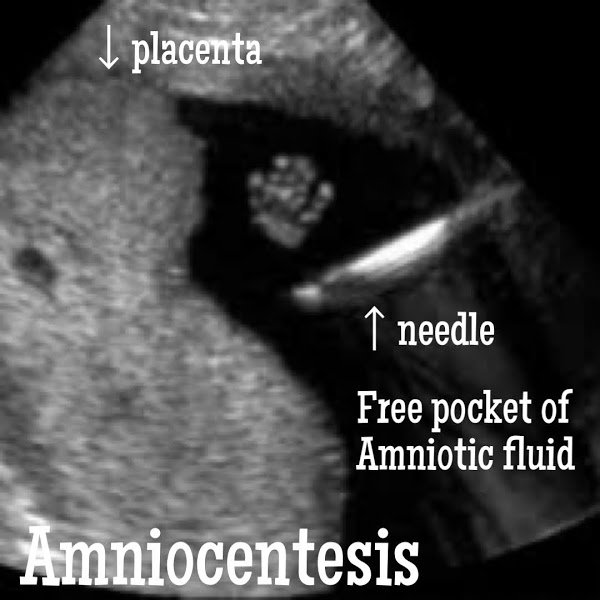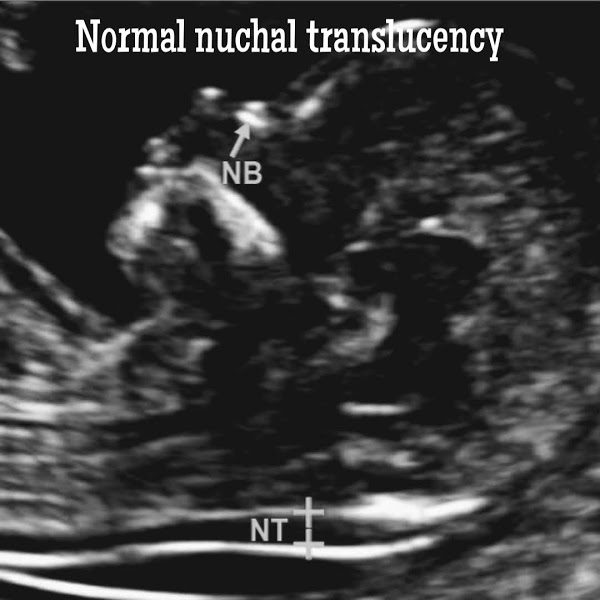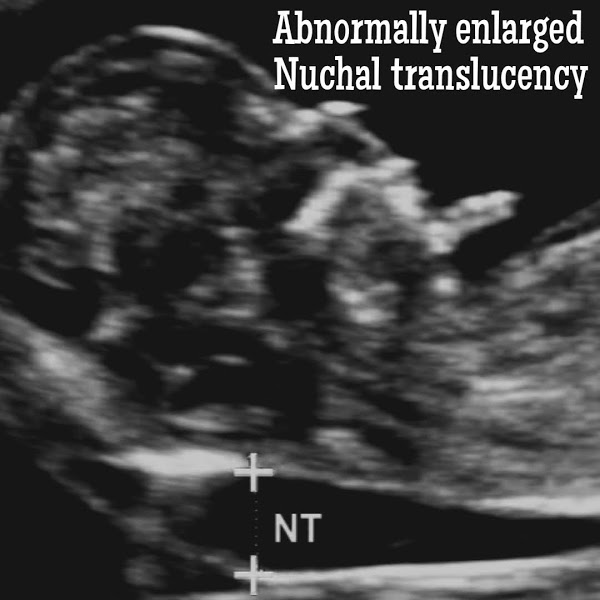With today’s increased knowledge of health and development of babies in the womb, there are several tests that expectant mothers will undergo to ensure the health of both, herself and her baby. In this post I am going to tell you all the standard prenatal testing for genetic disorders.
First trimester prenatal standard testing for genetic disorders.
- CBC stands for Complete Blood Count: This test checks for anemia and other abnormalities that may occur within blood components.
- Urinary Analysis: Regular urine analysis check for infection, protein, blood, or any other products that should not be present in the urine, and that may signal complications during pregnancy.
- Blood and RH factor: Your blood type is determine by 2 factors, the blood group: A, B, AB or O. and the RH factor or Rhesus RH status, this last one could be positive or negative. Example: in couples with different RH, the woman RH+ and the baby’s dad with RH-, RhoGAM injections are given to the mom to prevent antibodies from forming that could harm this or future babies. Rh factor could lead to serious complications in the newborn, or in your next child. Women who are RH negative need to have additional screening done later in the pregnancy.
- Immunity: A blood test is required to ensure immunity from German measles (rubella).
- STD: Tests for sexually transmitted diseases are also necessary.
- Diabetes screening: You will be tested for diabetes in your first trimester or second, depending upon your risks factors.
- Tests for other infections: There are tests for Hepatitis B, syphilis, HIV, chickenpox, toxoplasmosis, chlamydia, gonorrhea, TB, and lastly for bladder infections.
- Pap smear: Is a test that gets sample cells from the cervix to rule out pre-cancer cells.
- First trimester ultrasound: An ultrasound is always performed during the first trimester. The purpose of this ultrasound is to rule out viability, size and dates, determine a due date, rule out multiple pregnancies, and check for ovarian cysts or fibroids. This ultrasound is usually performed through the vagina, is painless, fast and very precise, and is totally safe for the baby and the mother. A transvaginal ultrasound is also used to rule out miscarriages in case of abnormal bleeding occurs during early pregnancy, because unfortunately statistics has shown that 1 in 5 early pregnancies will end in miscarriage.
- Genetic carrier testing: Based on ethnic background or family history you might be offered a test to determine if you are a carrier of common genetic conditions, such as cystic fibrosis, Tay-Sachs or sickle cell anemia. The mother is tested first, if the test results are positive, then the baby’s dad is tested as well. Carriers don’t show any signs of disease. And only if both parents are carriers then the chances of having a baby showing and suffering the condition is really high.
Second trimester standard prenatal testing for genetic disorders.
- AFP/Quad screen: This test can be performed between 15 to 20 weeks. But is generally more accurate between 16 to 18 weeks. This test will find babies who may have a serious genetic disorders, such as Down syndrome, Trisomy 13 or 18, spinal cord or neural tube defect (NTD). About 70% of accuracy for babies with the genetic conditions (Down syndrome, Trisomy 13 or 18), and about 90% with NTD’s are found. If this test is positive, further testing with ultrasound and amniocentesis is necessary.
- Level 2 Ultrasound or Anatomy scan: This ultrasound is usually done between 18 to 20 weeks. During this ultrasound, measurements are taken to determine if the baby is growing appropriately. Also the anatomy of the baby will be checked. Organs such as Heart, kidneys, stomach, spine, insertion of the umbilical cord and limbs are clearly seen. During this ultrasound placenta location (to determine placenta previa) and amniotic fluid levels are also checked. The gender of the baby is also seen during this ultrasound.
- Diabetes screening test: Gestational diabetes occurs in about 8% of pregnancies. Hemoglobin A1C (HgB A1C) and a fasting glucose in the first trimester, is often followed by a 1, 2 and 3 hour glucose tolerance test. If these test are positive, the mother is diagnosed with gestational diabetes. The majority of cases are resolved and managed by a nutritionist and diabetes educator with a healthy diet and exercises. However, in some cases pregnant women will need insulin.
Third trimester standard prenatal testing for genetic disorders.
- Group B strep culture: A swab of the vaginal and rectal canals are obtained between 35 to 37 weeks. This test will check for a bacteria that grows in about 20-35% of women, who usually have no symptoms. But in few rare cases. infection with this bacteria can cause serious harm to the baby. The good news is that this test is so precise that only 1% of women who have Group B strep will have an affected baby.
Other optional standard testing for genetic disorders.
- NIPT (Non-invasive prenatal testing): Using a sample of blood from the mother, the baby’s DNA can be analyzed to detect Down syndrome or any other serious genetic conditions. This test is totally safe for mom and baby, and have a high detection rate.
- CVS (Chorionic villus sampling): This is test performed to rule out genetic conditions. Is done between 10 to 12 weeks. Is usually offered to women 35 years of age and older. This test is guided by ultrasound. During this test a small catheter is inserted thought the abdomen or vagina, to extract a small amount of chorionic villi, the tissue that will eventually develops the placenta. This sample cells are analyzed for genetic conditions. The baby gender can be determined as well. CVS is 99% accurate. The miscarriage rate is approximately 1 in 200.
- NT (nuchal translucency): The nuchal is a targeted ultrasound ordered at 12 weeks of gestation, in which a measurement of the baby’s neck is obtained. This measurement is known as nuchal fold thickness. This test detects with 60 to 80% accuracy if there is Down syndrome.
- Combined screening: A blood test that measures pregnancy proteins at 10 to 14 weeks, this test combined with the nuchal translucency measurement help to boost the accuracy for detection of down syndrome and trisomy 18 up to 85%.
- Sequential screening: This test utilizes results from the combined screening done at 10 to 14 weeks, and the AFP/quad marker test done at 15 to 20 weeks to screen for down syndrome, Trisomy 18 and spinal cord or neural tube defects. The detection rate for these conditions is approximately 90 to 95%.
- Amniocentesis: This test is more accurate at 16 to 20 weeks of gestation. Often performed in women 35 years old or older. This test is a guided level 2 ultrasound, in which a pocket of amniotic fluid is located, then a needle is inserted into the mother’s abdomen to obtain a sample of the fluid. Some amniotic fluid is withdrawn to be chromosomally analyzed. This test detects with 99% accuracy if there are any neural tube defects or any other chromosomal condition. The risk of miscarriage of this test is 1 in 300.
Ultrasound images.
For more useful information about pregnancy visit my YouTube channel, here is the link.
Related posts you might like to read after:
How to maximize your chances of getting pregnant.
What To Expect From A Twin Pregnancy.
8 tips to reduce back pain during pregnancy.
What to expect from your fetal anatomy scan and how to prepare.
Final thoughts about standard prenatal testing for genetic disorders.
As you can see, the standard prenatal testing for genetic disorders are very varied. All of them with a single objective, to determine the presence of genetic or chromosomal diseases. Medical care for each pregnant woman can be very different from other women, because it depends on many factors such as age, family history, history of previous pregnancies with chromosomal conditions, etc. Therefore seeking specialized care is essential to ensure the success of your pregnancy.
I hope this article has given you a general guide. Share it with other mothers who may need it.
Zadi, xo
Disclaimer: The medical information on this post is for educational and entertainment use only. Under no circumstances, this information is to replace your doctor’s advice or to treat any disease. For proper care, always visit your doctor.














Hey, just stopping-by to say hello to you my wonderful friend <3.
This was yet again a very excellent piece — I had no idea that there was this many forms of testing available and it is great to get an idea from your blog about exactly what each one does, so I have to absolutely compliment you on that — you did a really good job as usual Zadi. And I hope that you are doing well and I wish you a great week lol
Same to you dear. As usual, is an honor having you here!!
Thank you, I deeply appreciate that. Enjoy your day and the rest of the week my friend <3